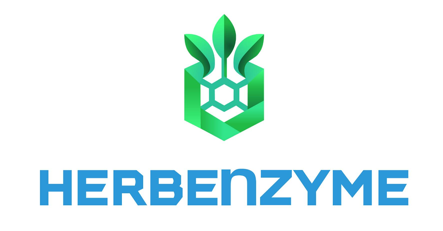- Contact us
- +66 98 591 9959
- contact@herbenzyme.com
Foods and life style : Avoid Mammal meat

Non-Communicable Diseases: Causes and holistic treatment options
September 2, 2020Regarding Mammal Meat:
This subject may cause frustration for some people since protein is necessary and needed in high amounts for certain cases/conditions. Regardless, we strongly recommend that for people who are dealing with NCD’s, especially cancer, allergy, auto immune, kidney problems, blood diseases, or liver problems, it is the best to avoid or minimize mammal meat. This reduces the work load on the liver, kidneys and helps the process of detoxing. Many NCD’s produce stress on the liver and kidneys.
Man need high protein for support to the following.
High intake of good quality protein is needed to support metabolic functions including:
Growth and maintenance of the body.
- Immunity: For production of antibodies, immunoglobulins and other components of the immune system.
- Enzymes: They carry out all biochemical reactions in the cells, They also assist with the formation of new molecules and cells by reading the genetic information in the DNA. Enzymes are necessary for digestion, energy production, blood clotting, and muscle contraction.
- Energy production: Proteins can supply the body with energy. Protein can serve as a valuable energy source but only in situations of fasting, exhaustive exercise or inadequate calorie intake. Protein contains four calories per gram, the same amount of energy that carbohydrates provide. Fats supply the most energy, at nine calories per gram. However, the last thing your body wants to use for energy is protein, since this valuable nutrient is widely used throughout the body for other purposes. Carbs and fats are much better suited for providing energy, as your body maintains reserves of them for fuel. Moreover, they are metabolized more efficiently compared to protein. In fact, protein supplies your body with very little of its energy needs under normal circumstances. However, in a state of fasting (18-48 hours of no food intake), your body breaks down skeletal muscle so that the amino acids can supply you with energy. Your body also uses amino acids from broken-down skeletal muscle if carbohydrate storage is low. This can occur after exhaustive exercise or if you don’t consume enough calories in general.
- Messengers: These are proteins such as hormones, that transmit signals to coordinate biological processes between cells, tissues, and organs.
Hormones have 3 main groups:
4.1 Peptides: These are made from chains of amino acids, ranging from a few to several hundred.
4.2 Steroids: These are made from cholesterol. The sex hormones, like testosterone and estrogen, are steroid-based.
4.3 Amines: These are made from the individual amino acids tryptophan or tyrosine, which help make hormones related to sleep and metabolism.
5. Body structure: Proteins provide structure and support for cells and whole body movement. These proteins include keratin, collagen and elastin, which help form the connective framework of certain structures in your body. Keratin is a structural protein that is found in your skin, hair and nails. Collagen is the most abundant protein in your body and is the structural protein of your bones, tendons, ligaments and skin. Elastin is several hundred times more flexible than collagen, Its high elasticity allows many tissues in your body to return to their original shape after stretching or contracting, such as the uterus, lungs, kidney and arteries. A class of proteins known as fibrous proteins provide various parts of your body with structure, strength and elasticity.
6. Transport and storage: Proteins bind and carry molecules within the cells and throughout the body. Transport proteins carry substances throughout your bloodstream – into cells, out of cells, or within cells. The substances transported by these proteins include nutrients like vitamins or minerals, blood sugar, cholesterol and oxygen. For example, hemoglobin is a protein that carries oxygen from your lungs to body tissues. Glucose transporters (GLUT) move glucose to your cells, while lipoproteins transport cholesterol and other fats in your blood.
7. Maintain pH: A variety of buffering systems allows your bodily fluids to maintain normal pH ranges. Protein plays a vital role in regulating the concentrations of acids and bases in your blood and other bodily fluids. The balance between acids and bases is measured using the pH scale. It ranges from 0 to 14, with 0 being the most acidic, 7 neutral and 14 the most alkaline.
8. Balances fluid: Proteins regulate body processes to maintain fluid balance. Proteins in your blood maintain the fluid balance between your blood and the surrounding tissues. Albumin and globulin are proteins in your blood that help maintain your body’s fluid balance by attracting and retaining water. If you don’t eat enough protein, your levels of albumin and globulin eventually decrease. Consequently, these proteins can no longer keep blood in your blood vessels, and the fluid is forced into the spaces between your cells. As the fluid continues to build up in the spaces between your cells, swelling or edema occurs, particularly in the stomach region. This is a form of severe protein malnutrition that develops when a person is consuming enough calories but does not consume enough protein.
So, we need high protein intake but the protein should be from clean sources that do not leave metabolic toxins in the body. Mammal meats unfortunately do tend to leave higher levels of toxins and free radicals.
Arguments for avoiding mammal meats:
Since man and other mammals are the same group, it is easy for toxins in mammal meats to transfer to human tissue. Also, mammal meats can be a source of communicable diseases when ingested, and may also contain carcinogens.
All industrial farming of mammals involves the use of high amounts of chemicals, hormones, and carcinogens from both the farm and during processing of the meat. These agents can transfer directly into humans through eating the meat.
Fat and oil from mammal meat tends to increase LDL (low density lipoprotein) and triglycerides, and produces less HDL (high density lipoproteins). This leads to increased cardiovascular risk.
Mammal meat is difficult for human digestion. Our digestive system is designed for plant food sources. HCL (hydrochloric acid) is produced in the stomach to digest protein, and humans produce only 5% of the HCL that carnivore animals produce. This would take a much longer time in our stomach for digestion, and can promote fermentation, toxic gases, and pathogenic bacteria in the gut. If we take some fruits or sweets after eating meat, it further promotes fermentation and impaired digestion of the meat. This situation is not good for our health.
Mammal meats produce more ammonia. Ammonia is a gas which is toxic to the body. Mammal meats produce more ammonia than other protein sources, and the ammonia has to be sent to the liver to be processed into urea, which is much less toxic and is then sent on to the kidneys for elimination in the urine. This makes extra work for the liver and kidneys. Nearly all NCD’s are related to impaired or stressed liver and kidney function, so mammal meat should be avoided in the case of NCD’s.
Mammals are intelligent animals. They know when they are being taken to the slaughterhouse. The stress and fear they experience causes the production of stress chemicals, such as adrenalin, which can also affect your body chemistry.


What are recommended protein sources:
When avoiding mammal meat, we have so many good protein sources such as the following:
1. Protein sources ( in order of preference and clean sources)
Mushrooms: Among those protein sources, mushroom is the best with very low toxic residue and containing all the 22 needed amino acids. And they contain low fat and oil, low sugar, and high fiber.
Eggs: Many people worry about eating eggs since they worry about cholesterol. Most of the body’s cholesterol is produced in the liver, and problems with high blood cholesterol reflect a metabolic problem, not dietary cholesterol excess. Moderate use of eggs does not cause a significant rise in cholesterol for most people. Eggs are a good, high source of protein with all 22 essential amino acids. If you are still worried about the cholesterol in eggs, then you can use just the egg whites, which contain all the protein without the cholesterol. The fat from mammal meats is actually more of a cholesterol problem, since it contains a higher amount of low density lipoproteins.
Nuts: Nuts are a good and clean source of protein, but do not contain all of the essential amino acids. They are also a good source of oil and essential fatty acids, and contain none of the toxins and potential carcinogens that are found in mammal meats.
Deep sea fish, coastal fish, river fish, cuttlefish, shrimp, crab, shellfish are good source of complete protein, but can contain more pollutants due to pollution of the water.
Poultry meat: For poultry, be sure to choose organically raised poultry if possible. Commercial poultry farms use toxic hormones and antibiotics in the poultry feed and water, which stays in the meat.
Mammal meat: We recommend avoidance for the NCD’s patients.
2. For NCD’s patients, be sure to select clean protein sources:
All NCD patients still need high protein with all 22 essential amino acids. All animal meat contains the essential amino acids, but toxins in the meat and low density lipoprotein content are a major concern.
Among clean and healthy protein sources, mushrooms would be the best since they are a clean source of protein, contain no LDL, and have all essential amino acids.
The criteria for selection are:
Clean protein: No toxic substances from the meat sources, easy to digest with less toxins and ammonia being produced during digestion, and no contamination from carcinogens and other toxins during the raising, slaughtering, and preservation of the animal meat.
High protein: Containing all 22 essential amino acids.
Less or no Low density Lipoprotein and Triglycerides, which would tend to elevate your LDL and Triglycerides after ingestion.


1 Comment
Very good info tq.
Puzi
60133654038